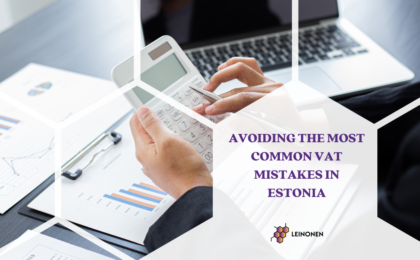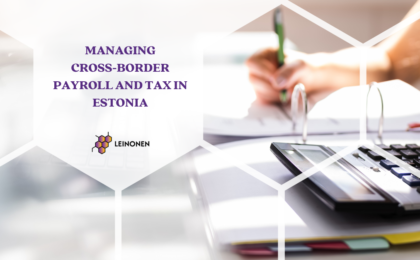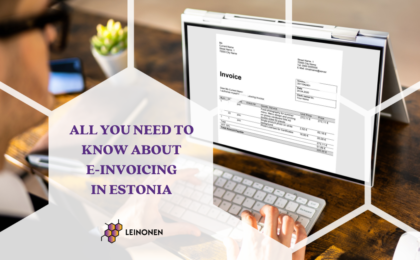- the existence of a permanent establishment;
- whether or not the purchaser of the goods or recipient of the services is a taxable person or a taxable person with limited liability in Estonia;
- the type of the transaction (special arrangements apply to distance selling by a person of another Member State, and to electronic services by a third country person).
When a non-resident sets up a permanent establishment in Estonia, they must register themselves as a VAT payer similarly to an Estonian resident. The Value Added Tax Act does not provide a definition of a permanent establishment, which means we have to proceed from the definition provided in the Taxation Act, which sets out all the general principles of taxation. Subsection 9 (3) of the Taxation Act stipulates that a permanent establishment is the place through which, whether in full or in part, the permanent economic activities of a non-resident are carried out in Estonia.
Thus, a non-resident can do business in Estonia without having a permanent establishment here. The decisive factor is whether his economic activity in Estonia is permanent or the non-resident can be said to be operating in Estonia under a temporary contract. In the latter case, he has no permanent establishment in Estonia and other criteria are used to determine whether or not he is a taxable person in Estonia.
In the event of a non-resident who does not have a permanent establishment in Estonia, we should determine the cases in which they have to register themselves as a taxable person in Estonia.
The answer to this question can be found in subsection 19 (3) of the Value Added Tax Act: a non-resident who does not have a permanent establishment in Estonia is required to register if he creates taxable supply in Estonia and such supply is not taxed upon the acquisition of goods or receipt of services by an Estonian taxable person or taxable person with limited liability in Estonia. This provision does not give rise to the registration obligation in the event of distance selling and the registration obligation does not arise at all in the event of a zero percent value added tax rate (excl. intra-Community turnover) or if the foreign person is registered in another Member State pursuant to the special arrangements for applying VAT to electronic services.
This provision implies that a non-resident without a permanent establishment in Estonia becomes a taxable person in Estonia if all of the following conditions are met:
- the non-resident sells goods or provides services in Estonia to a person who is not a taxable person or a taxable person with limited liability;
- the goods or services are subject to VAT, but not at the rate of 0%.
This means that if a non-resident sells goods or provides services to a private person or a legal entity that is not a VAT payer, they have to register themselves in Estonia as a VAT payer and pay VAT to the state of Estonia.



